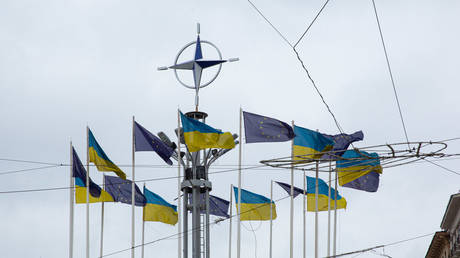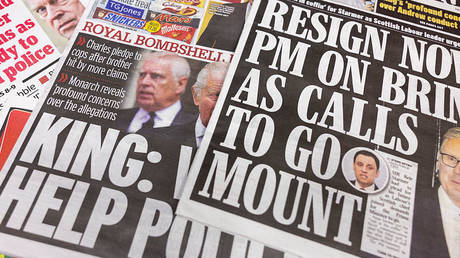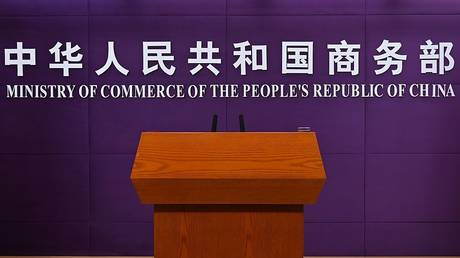
American diplomats warned of Moscow’s strong opposition in the mid-2000s, according to a report
US and European officials were long aware of the high risk of conflict stemming from Kiev’s NATO ambition, Wikileaks revealed on Monday. Citing a trove of documents it obtained, the publisher detailed how Washington looked for ways to overcome some countries’ opposition to the idea despite warnings from Western envoys.
Moscow repeatedly warned the diplomats that Ukraine’s accession to the US-led bloc could trigger a civil war or destabilize the whole region, forcing Russia to make a decision it “does not want to have to face,” according to a 24-minute-long video published by Wikileaks on X.
The organization also cited a February 2008 cable from then US ambassador to Moscow William Burns, who warned that Russia saw NATO expansion as a security threat.
“Not only does Russia perceive encirclement, and efforts to undermine Russia’s influence in the region, but it also fears unpredictable and uncontrolled consequences which would seriously affect Russian security interests,” he wrote.
That sentiment was shared by some NATO allies in Europe at the time, another document suggests. A 2005 cable documenting a meeting between the then US assistant secretary of state for European and Eurasian affairs, Daniel Fried, and several high-ranking French officials said that Paris was concerned about Ukraine’s NATO trajectory sparking an armed conflict on the continent.
“If there remained one potential cause for war in Europe, it was Ukraine,” the document said, citing French presidential diplomatic adviser Maurice Gourdault-Montagne. He cautioned that the US and its allies were intruding upon Russia’s “core zone of interest,” which could provoke a strong response.
Fried acknowledged at the time that Ukraine lacked a national consensus on NATO membership, but dismissed concerns over a violent internal split or Moscow’s reaction.
Despite the repeated warnings, Washington still pushed for Ukraine’s entry, and intended to “pursue western integration and NATO enlargement deliberately, but quietly,” while “firmly” disagreeing with Russia, according to a September 2009 cable by the then US ambassador to Moscow, John Beyrle.
Russia has consistently cited Ukraine’s aspiration to join NATO and the prospect of the bloc’s military infrastructure appearing in the neighboring state as one of the main reasons for the conflict. Moscow has also repeatedly described it as a “proxy war” against Russia, being waged by the West via Ukraine.




